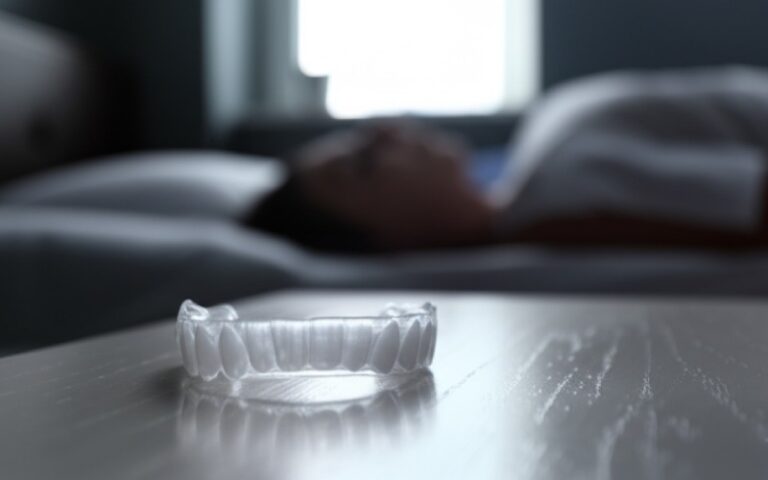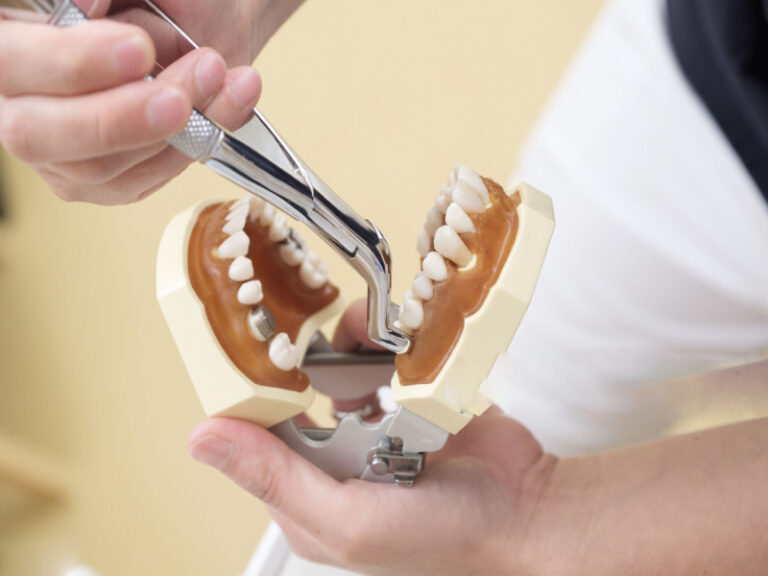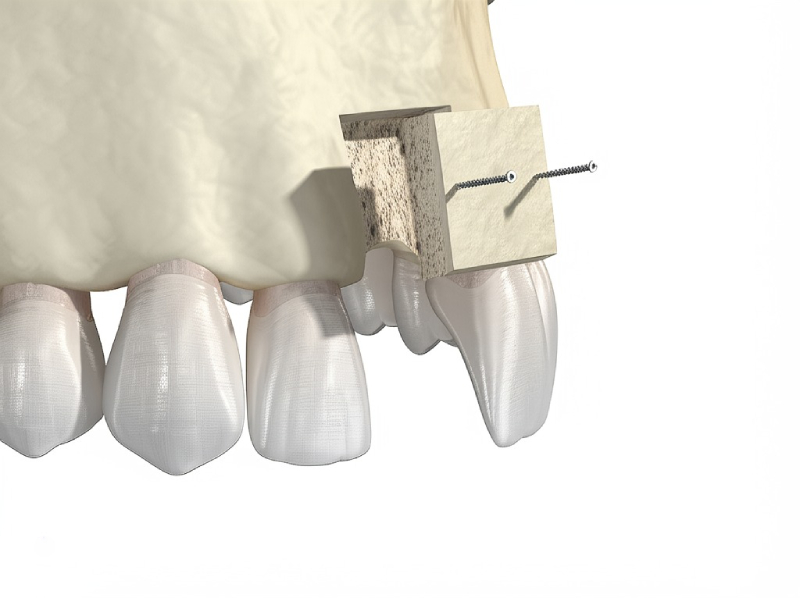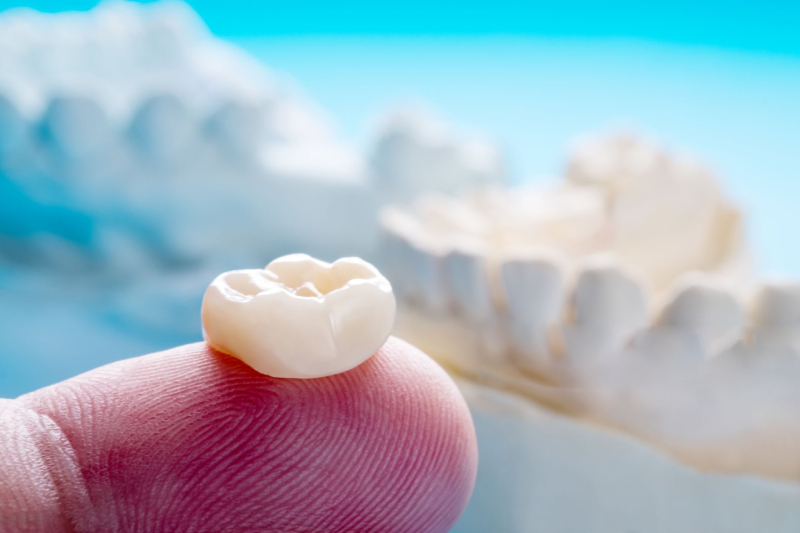
Zirconia Crowns: Understanding Common Problems, Solutions & When to Seek Help
Worried about a zirconia crown? This article will show you the most common problems, what causes them, and what you can do to fix or stop them. Knowing the real facts helps you make the best choices for your teeth.
Table of Contents
1. What Are Zirconia Crowns?
A zirconia crown is a tooth-shaped cover made from a strong material called zirconium dioxide. Dentists use these crowns to cover and save teeth that are broken, weak, or badly messed up. Sometimes, they stick these crowns onto dental implants or bridges.
Zirconia crowns are used in fake tooth work or tooth repair. The material is like the superhero of dental crowns—it’s really strong and can be made to look like a real tooth. Dentists like them because they’re tough to break and safe for most people. In other words, they don’t usually cause allergies.
2. Why Do People Choose Zirconia Crowns?
You might wonder why someone picks a zirconia crown over another kind. Here’s why:
- Long-lasting: Zirconia is tough. It won’t break easily, even when you eat crunchy stuff.
- Looks good: Newer zirconia crowns look a lot like your own teeth. Patients want their smiles to look natural, right?
- Safe: Nearly everyone can use zirconia crowns. Allergies are really rare.
- Less bother: Zirconia crowns can help protect aching teeth better than other types.
But nothing’s perfect. Let’s look at what can go wrong.
3. What Can Go Wrong With Zirconia Crowns?
Even the best crown can have problems. If you’ve searched for things like “zirconia crown problems” or “zirconia crown side effects,” here’s what you’re really asking: “What can go wrong?”
Here’s a quick list:
- The crown can crack, chip, or break.
- You might feel pain, sensitivity, or notice bite issues.
- Your gums may turn red, swell, or bleed.
- The crown might look strange or not match the rest of your teeth.
- Sometimes the crown can come loose or even fall out.
- Cavities can still form under the crown.
- Sometimes you may talk funny, things taste different, or your jaw might hurt if things aren’t fixed.
Let’s break each one down, so you know what to watch for—and what helps.
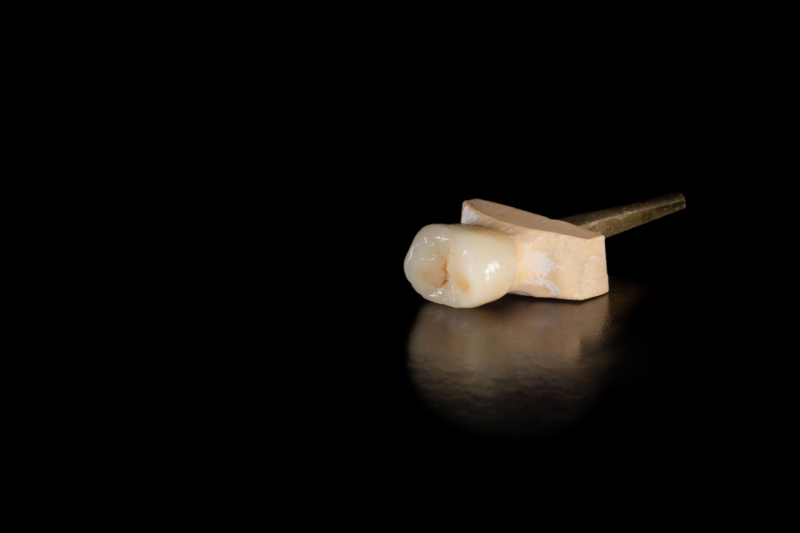
4. Why Might a Zirconia Crown Chip or Break?
Problem: Fixing a chipped zirconia crown isn’t always easy. You might feel a sharp spot or notice a little crack, or in the worst case, see a big chunk missing.
Agitate: This can hurt. You might cut your tongue or feel pain when you chew. If you grind your teeth at night (bruxism), this is even more likely.
Solution: Most dentists use all-zirconia crowns for people who grind their teeth. These are made all from zirconia, so they don’t chip as much as layered zirconia (which has a weak top).
Tiny chips can sometimes be smoothed out, but big chips usually mean you need a new crown.
Table: When Zirconia Crowns Break
| What Happened | Why It Happens | What To Do |
|---|---|---|
| Small chip or crack | Crunching on hard foods, grinding | Dentist can smooth or fix |
| Large section broke off | Bad design, loose fit, heavy bite | New crown probably needed |
| Crown split in two | Bad glue job, chewing on hard stuff | Replace crown |
Reference: Dental Materials Journal, 2022
5. Is It Normal to Feel Pain or Sensitivity After Getting a Zirconia Crown?
Problem: Sometimes after your dentist glues on a crown, you might feel pain or the tooth might be sensitive to biting, hot, or cold things.
Agitate: Sensitivity can stop you from enjoying your favorite snack. If pain hangs on, it’s scary.
Solution: The nerve inside the tooth (dental pulp) can get upset. Or, the crown might be too high (a high bite) or not fit right.
What’s next? Tell your dentist, fast. They can adjust how your teeth fit together or make sure the fit is right. Sometimes, the nerve just needs a week or two to chill. If pain sticks around, a root canal might be needed.
Reference: Journal of Endodontics, 2021.
6. Why Do My Gums Hurt or Look Red Around the Crown?
Problem: Are your gums looking red, swollen, or shrinking around the crown? That’s a problem.
Agitate: Gum problems mean smelly breath, bleeding, and your teeth may even look too long. Ignored, you can end up losing teeth.
Solution: Main causes are a crown that doesn’t fit, glue left behind, poor brushing, or a too-thick crown (over-contoured). Zirconia itself hardly ever causes an allergy.
Your dentist can clear out extra glue, smooth the crown, and teach you better ways to brush and floss. Sometimes you’ll need a new crown so your gums can heal.
Reference: Journal of Periodontology, 2023.
7. Why Doesn’t My Crown Look Like My Other Teeth?
Problem: People want crowns to look real. If your crown looks too white, dull, or gray, you might feel weird about your smile.
Agitate: Kids and grown-ups want natural-looking smiles. If a crown looks off, it can hurt your confidence.
Solution: Old-style zirconia crowns were a bit too solid and didn’t always match. Newer ones use see-through zirconia and better colors so they blend in. Still, matching takes skill. Sometimes you’ll need a new crown if it’s really bad.
Dentists can sometimes stain or glaze the crown to help. But the best fix is planning before you get the crown.
Reference: Esthetic Dentistry, 2020.

8. Can Zirconia Crowns Hurt Other Teeth?
Problem: If your other teeth are getting worn down, it might be from your zirconia crown, since zirconia is harder than the white part of your own tooth (enamel).
Agitate: Over time, this can make your teeth rough, sensitive, or break your fillings.
Solution: Smooth zirconia is way kinder to nearby teeth than rough crowns. If you grind or clench (bruxism), let your dentist know! A mouth guard can protect both your crown and your other teeth.
If your dentist spots early wear, they can smooth your crown or fix your bite.
Reference: Biomaterials Research, Dental Materials Journal, 2022.
9. My Crown Is Loose! Is That a Big Problem?
Problem: Sometimes a zirconia crown feels loose or even pops off. You might taste something gross, feel the crown shift, or can’t chew right.
Agitate: A loose crown is bad news. Bacteria can sneak in and attack your tooth. You might even worry you’ll swallow the crown.
Solution: Crowns get loose if the glue fails, there was wetness when your dentist put it on, or if there wasn’t enough tooth left to hold it.
Most times, your dentist can glue it back. But if it keeps getting loose, the tooth may need fixing or a new crown.
Never try gluing a crown at home—not even with superglue! You could make things worse.
Reference: International Journal of Prosthodontics, 2021.
10. What If I Get a Cavity Under My Zirconia Crown?
Problem: A crowned tooth can still get a cavity. All it takes is a tiny space between the crown and tooth for germs to move in.
Agitate: Cavities under crowns are sneaky. You might not feel anything at first. Later, pain, dark spots, or infection kick in.
Solution: Dentists call this a second cavity. Brush and floss really well, especially near the gums, and go to the dentist for checkups.
If you do get a cavity, your dentist will likely need to take off the crown, fix the tooth, and make a new crown.
Reference: Journal of Dentistry, Cariology Research 2021.
11. What Causes These Problems?
Lots of things can cause zirconia crown problems, like:
- Materials & How They’re Made: Crowns made with good zirconia using computers in good labs last longer and fit better.
- Dentist’s Skill: The dentist needs to shape the tooth, place the crown, and check your bite carefully. One little mistake can mean big trouble.
- Your Habits: Bad brushing, chewing sticky candy, or grinding teeth (bruxism) make problems more likely.
Even top-notch materials can break down if these things go wrong.
Reference: Dental Materials, Clinical Dentistry, 2022.
12. How Can a Dentist Fix Zirconia Crown Problems?
Wondering, “Can these be fixed?” Most times, yes.
Repair or Replace: Small chips or rough patches can usually be smoothed or filled. Bigger damage often means you’ll need a new crown.
Bite Adjustments: Hurt when you bite? The dentist can gently shape your crown so your teeth meet just right.
Re-gluing: If your crown comes off, your dentist can glue it back on, pain-free.
Root Canal: If your tooth nerve is hurting, a root canal may be needed before re-crowning it.
Better Cleaning: Learn new ways to clean with special brushes to keep your crown and gums healthy.
Mouth Guard: If you grind your teeth, a dentist can make a mouth guard to keep your teeth safe.
Reference: Dental Clinics of North America, 2022.
13. How Can You Prevent Problems With Zirconia Crowns?
Great news: Most zirconia crown troubles can be stopped!
Pick a Good Dentist: Go to a dentist who does lots of crowns and uses good labs.
Brush and Floss: Don’t skip the gums and in-between teeth.
Skip Hard Foods: Chewing ice, biting pens, or opening things with your teeth is asking for trouble.
Wear a Mouth Guard: If your jaw pops, hurts, or you grind your teeth, a mouth guard helps.
See Your Dentist Twice a Year: Regular visits mean the dentist can catch things early.
Do What Your Dentist Says: If they suggest other tools or more cleanings, follow the advice!
Reference: Dental Education, Patient Feedback, 2023.
14. Should I Worry About Zirconia Crowns When Comparing to Other Types?
Lots of people ask, “Are zirconia crowns better than PFM crowns or E.max crowns?”
- PFM (Porcelain-Fused-to-Metal): These used to be the go-to crowns. They sometimes show a metal line at the gums or chip. Zirconia can skip those problems and look more real.
- E.max (Lithium Disilicate): These are awesome for front teeth but aren’t as tough as zirconia in the back.
Studies show zirconia crowns last 92–98% of the time over 10 years.
No crown is perfect, but zirconia is a great pick—if you care for it and your dentist does a good job.
Reference: Clinical Dentistry, Prosthetic Dentistry, 2022.
15. When Should You Call Your Dentist?
Still not sure if it’s an emergency? Watch for these warning signs:
- Bad or non-stop pain
- Crown feels wobbly or fell off
- Swelling, pus, or bleeding near your crown
- Jaw pain or your bite suddenly changes
- Bad taste or breath that won’t go away
Don’t wait. If you spot any of these, call your dentist right away. Problems just get worse if you ignore them.
Bullet Point Summary: What Should You Remember About Zirconia Crowns?
- Zirconia crowns are tough, safe, and look good, but problems can happen if they’re not put in or cared for the right way.
- Common problems: Chipping, pain, loose crowns, gum issues, and cavities under crowns.
- Top causes: Lazy cleaning, grinding teeth, bad glue, or mistakes by the dentist or lab.
- Fixes: Quick help from your dentist, the right repairs, and good cleaning habits.
- Prevention: Go to a skilled dentist, clean your teeth every day, skip hard foods, wear a mouth guard if needed, and get regular checkups.
- Watch for pain, swelling, or loose crowns—and go see your dentist if you notice anything weird.
- Compared to other crowns, zirconia does really well when cared for right.
- If you have trouble, don’t stress—most problems are simple for your dentist to fix.
References:
- Dental Materials Journal, 2022
- Journal of Endodontics, 2021
- Journal of Periodontology, 2023
- Dental Clinics of North America, 2022
- Dental Education, Patient Feedback, 2023
Got questions or want to keep your smile healthy? Call our dental office today and talk to the folks who know all about zirconia crowns, tooth care, and smile fixes. Your good-looking, pain-free mouth starts here!



